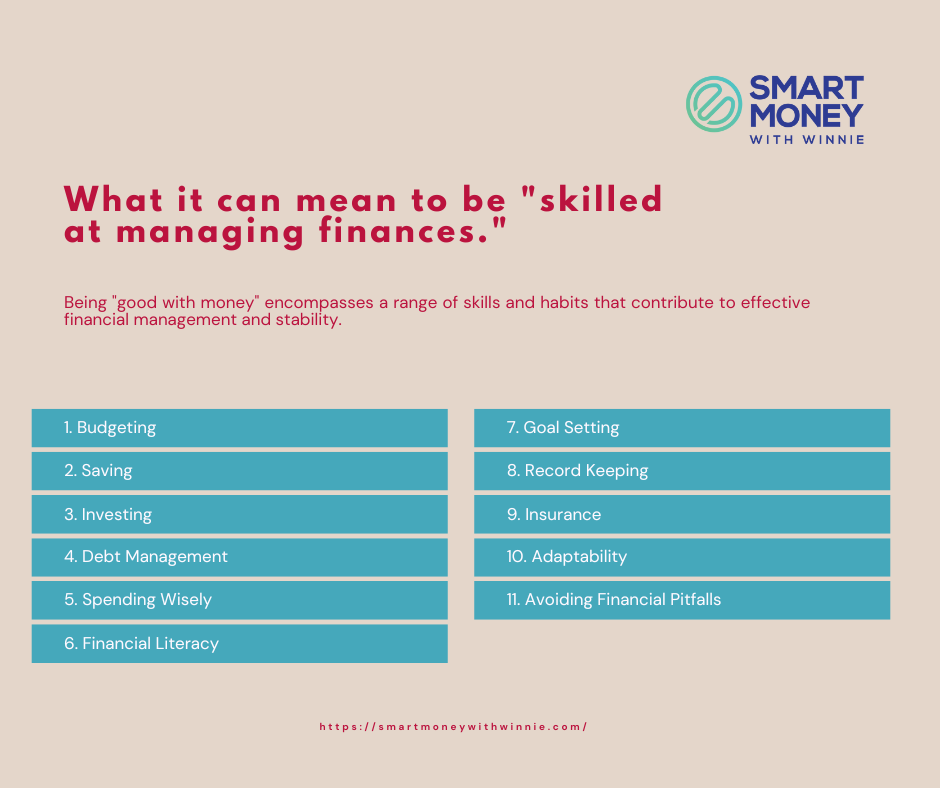The Kenyan perspective on being “good with money”

What does it mean to be “good with money” from the perspective of Kenyans?
The Kenyan perspective on being “good with money” encompasses various aspects and behaviors. This includes managing finances wisely, prioritizing saving and investment, and making informed financial decisions. Being “good with money” in Kenya also involves being resourceful, avoiding unnecessary debt, and practicing frugality and financial discipline. Additionally, it entails having a long-term financial plan and being prepared for unexpected expenses or financial emergencies.
Mastering the art of handling money involves acquiring various skills and developing habits that lead to successful financial management and security. Achieving this involves finding equilibrium and cultivating positive routines.
Managing your finances is a continuous process rather than a definite endpoint. It’s normal to encounter obstacles, but the important thing is to stay aware and take charge of your financial situation.
Through proactive efforts and the pursuit of knowledge, you can acquire the abilities necessary to effectively handle your finances.
Below are several important aspects that represent what it means to be skilled at managing money:
- Budgeting: Formulating a Budget: Developing a comprehensive budget that delineates earnings, expenditures, savings, and investments. Adhering to the Budget: Consistently sticking to the budget to prevent overspending and achieve financial objectives.
- Saving: Rainy Day Fund: Maintaining a safety net that covers 3-6 months’ worth of living costs. Regular Saving: Allocating a portion of income regularly, whether for short-term targets or long-term aspirations.
- Investing: Informed Investment: Grasping fundamental investment principles and diversifying investments to reduce risks. Retirement Preparation: Contributing to retirement accounts like 401(k)s, IRAs, or other pension schemes.
- Debt Management: Avoiding Needless Debt: Steering clear of high-interest debts and using credit responsibly. Settling Debts: Prioritizing the repayment of current debts, particularly those with high interest rates.
- Making Smart Financial Choices: Distinguishing between essential needs and non-essential wants when spending money. Utilizing coupons, discounts, and comparison shopping to ensure getting the most value out of purchases.
- Understanding Financial Concepts: Keeping up with financial topics, including new investment opportunities, changes in tax laws, and effective money management strategies. Seeking guidance from financial experts or using reliable sources to make well-informed financial decisions.
- Establishing Objectives: Setting and reaching short-term financial targets such as saving for a vacation, a vehicle, or other major expenses. Planning for long-term financial goals such as purchasing a house, funding education, or retirement.
- Keeping Records: Maintaining Financial Tracking: Ensuring accurate records of income, expenses, and financial transactions. Examining Statements: Regularly evaluating bank statements, credit card bills, and investment portfolios.
- Insurance: Ensuring Adequate Coverage: Verifying proper insurance coverage for health, property, life, and other areas to safeguard against unforeseen financial burdens.
- Flexibility: Modifying Plans: Being adaptable and adjusting financial plans in response to life changes such as job loss, marriage, children, or economic shifts.
- Steering Clear of Financial Traps: Beware of Scams: Exercising caution against financial scams and fraudulent schemes. Control Impulses: Resisting the urge for impulse purchases and unnecessary financial commitments.
Successfully managing finances requires a mix of self-control, understanding, and proactive preparation. It entails making well-informed choices that are in line with one’s financial aspirations and principles, ultimately securing long-term financial well-being and stability.





